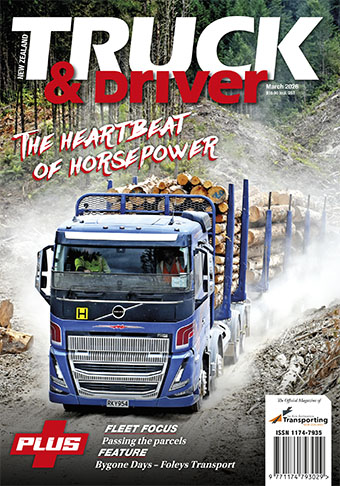
Systemic failure killed Johnathon
Posted: 08-Aug-2025 |
A death that should never have happened
Last week, a transport company director pleaded guilty to manslaughter charges following the death of roadworker Johnathon Walters, who was run over by an unroadworthy truck in May 2024.
The NZ Herald has covered the tragedy in detail (Craig Kapitan – READ STORY), so we won’t go further into the specifics here. But one fact must be clear:
This was a death that never should have happened.
What really killed Johnathon?
Johnathon’s death was caused by a series of systematic failures. Highlighted by the fact that after many significant breaches the operator was still able to beat the system and to win work.
1. A TSL should be a privilege not a right
It is far too easy to become a transport operator in New Zealand. Once you pass an open-book test, you're licensed to operate a transport business of any size, no business plan, no proof of sustainability, and no required experience or expertise.
Meanwhile, for NZTA and Police, it’s far too difficult to stop repeat offenders who continually ignore regulations.
- Pink stickers: Meaningless to those who don’t believe maintenance matters.
- Court action: Too often delayed or ineffective.
- Detection: Nearly impossible in a large city without sufficient enforcement resources.
The truck that killed Johnathon had been operating unregistered for two years and without a certificate of fitness for more than three years.
Unless that vehicle was stopped at a Commercial Vehicle Safety Centre or flagged by a stretched roading police unit, it had little chance of being caught.
This is not the fault of frontline NZTA or Police staff. They're doing their best within the limits of the current regulations, regulations that do not empower them to act decisively against operators who continuously flout the law.
2. Gaps between agencies
Poor coordination between government agencies compounds the problem. A non-compliant transport operator is often cutting corners elsewhere: Tax, employment, health and safety. Yet data isn't shared and red flags go unnoticed across systems.
Inter-agency collaboration could have stopped this operator long before Johnathon was killed.
3. Commercial pressures reward the wrong operators
The myopic commercial lense being applied by some cargo owners for the procurement of transport services is yet another failing.
Cargo owners must be willing to pay a fair price for compliant transport services. Cost should not be prioritised over safety and compliance.
Road freight transport is a highly regulated industry with significant operational and compliance costs. These costs go well beyond the price of fuel, vehicles and maintenance. They include meeting the rigorous compliance requirements set by governmental bodies to ensure safety, fair labour practices, and environmental stewardship.
The allure and danger of cheap transport can tempt cargo owners, many of them household names, to procure services that may cut safety and compliance corners. This makes a mockery of the deep industry experience and expertise required to run a safe and compliant road transport operation – be it 1 truck, 50 or 500.
The way to solve this is robust ‘chain of responsibility’ laws like Australia’s that can hold the procurers of freight services responsible when deaths or serious injuries occur. The problem is New Zealand’s chain of responsibility laws are toothless – very few prosecutions have occurred.
The result:
- Procurement decisions made by spreadsheet warriors with no transport or safety expertise.
- Consultants who disappear once the ‘savings’ have been made, but before the real costs appear.
- An uneven playing field for compliant operators
It’s unrealistic to expect roadworkers like Johnathon, or freight handlers to be the last line of defence in checking whether trucks are roadworthy.
4. The impact on compliant operators
Compliant operators see it every day - Unsafe, non-compliant trucks still operating freely; while they’re left footing the bill for doing the right thing.
At National Road Carriers, we hear the frustration loud and clear. This is not just unfair, it’s dangerous and it’s killing people.
A single high-profile incident involving an illegal operator casts a shadow over the entire industry, undermining the hard work and dedication of compliant operators. Left unchecked it will erode trust in our industry and the regulatory system.
What we’ve called for — and still are
- Graduated entry into the transport industry: Prove capability before expanding
- Real enforcement powers: Regulatory bodies must be given the resources and authority to identify and shut down illegal operators quickly and effectively.
- Chain of Responsibility reform: Hold contractors and decision-makers accountable for who they hire.
- Customer Education: Freight customers must be educated about the true costs and risks of choosing non-compliant operators and encouraged to prioritise compliance and commercial sustainability.
- Provide a clear channel for our operators and their drivers to report dangerous and non-compliant behaviour and vehicles.
- Incentives for compliance: Recognise and reward operators doing it right.
This must be a turning point
- Nothing can bring Johnathon back to his family.
- But his death must not be in vain,
- Let it be the catalyst for change,
- Let it be the moment we say enough and mean it.
- Reform the system before this happens again.
- Empower enforcement, close commercial loopholes,
- And finally, make sure no one else dies.
Justin Tighe-Umbers, Chief Executive, National Road Carriers Assn



 + EQUIPMENT GUIDE - FREE
+ EQUIPMENT GUIDE - FREE
